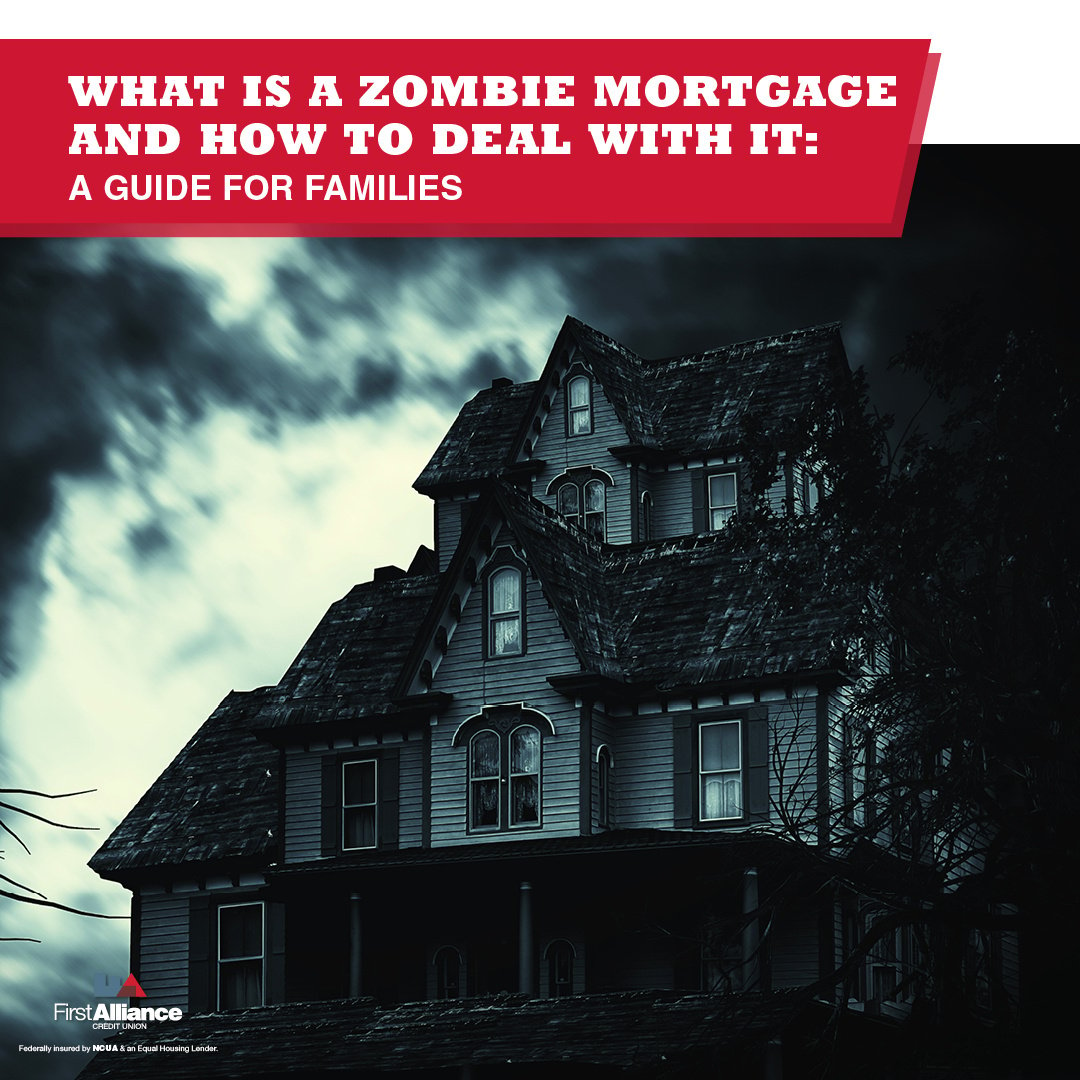Having Trouble With Your Mortgage? Here Are Some Ideas To Consider
You might have had great hopes for living the good life and paying off your mortgage when you signed on the dotted line; but no one can predict the...
4 min read
 Kamel LoveJoy
:
Oct 31, 2024 5:00:00 AM
Kamel LoveJoy
:
Oct 31, 2024 5:00:00 AM

If you’ve ever heard of a "zombie mortgage," you might think it’s something out of a horror movie. But unfortunately, it's a very real financial problem haunting thousands of families across the country. A zombie mortgage refers to a second mortgage that homeowners thought was dead but suddenly comes back to life. This debt can sneak up on families, putting their homes at risk of foreclosure.
In this guide, we'll explain what a zombie mortgage is, how it happens, and, most importantly, how you can deal with it. Whether you’re working a steady job and raising kids or living with your parents to make ends meet, this information could save you from a financial nightmare.
You may have heard stories about old debts rising from the grave. That’s exactly what happens with a zombie mortgage. Here's how it works: Many homeowners took out second mortgages years ago, maybe during the housing bubble in the early 2000s. They thought those mortgages were paid off, forgiven, or somehow vanished. But years later, the debt comes back, and often with added interest and fees.

Take John, a hardworking father who, like many families, had to take out a second mortgage after falling into financial hardship. After filing for bankruptcy and working hard to rebuild his life, John thought his second mortgage was behind him. But one day, he received a letter demanding payment for a mortgage he thought was long dead. Talk about a financial nightmare! John had become the victim of a zombie mortgage.
These loans often pop up when you least expect it, usually after years of not receiving any statements or bills. Debt collectors buy these mortgages for pennies on the dollar, and suddenly, they’re demanding massive payments, sometimes double what you originally borrowed. If you don’t pay up, you could lose your home.

Zombie mortgages didn’t just appear overnight. They have been lurking in the shadows, waiting for the right moment. Most of these loans were born during the housing bubble in the early 2000s when people were taking out second mortgages like Halloween candy. Banks were eager to lend money, and homeowners, like many of us, were eager to grab the opportunity.
Here’s the tricky part: when the housing market crashed in 2008, many families, like John’s, were left struggling. Some homes went into foreclosure, while others received mortgage modifications. Many of these second mortgages were forgotten during the chaos. Some homeowners were told that their second loans were forgiven, but that wasn’t always true.
Fast forward to today, and home prices have skyrocketed. Suddenly, these second mortgages are valuable again, and debt collectors are swooping in. They buy the old debts, tack on extra fees and interest, and come after your house like a financial zombie. If you're not careful, that zombie mortgage could eat up all your home equity and even your home itself.

Now that we know what a zombie mortgage is, let's talk about how to deal with one. If a second mortgage you thought was dead has suddenly risen from the grave, here are some steps you can take:
The first thing you should do is take a deep breath. Yes, receiving a letter about a debt you thought was gone is scary, but you have options. John, our example earlier, panicked at first but quickly realized that there were legal protections and steps he could take to fight back. The key is not to ignore it. Just like zombies in the movies, ignoring it won’t make it go away.
Before you start making any payments, make sure the debt is legitimate. Sometimes, debt collectors make mistakes, and you could be dealing with a scam. Ask for all the original paperwork and proof that the debt is yours. If the mortgage is real, review the details carefully. Look for any signs that the debt collector didn’t follow the proper legal process.
In some cases, like John’s, you may find that the debt collector didn’t send regular statements, which could be a violation of federal law. This is where the Truth in Lending Act comes in. If they didn’t follow the rules, you might have a strong defense.
If you’re facing a zombie mortgage, it’s time to call in the professionals. Look for a lawyer who specializes in consumer rights or foreclosure defense. Many families, like John’s, were able to fight back with the help of legal aid or a good lawyer. A lawyer can help you understand your rights and figure out the best way to stop the zombie mortgage from taking your home.

If the debt is legitimate, you may still have options. Just like negotiating with the monster under your bed, you can often work out a deal with the debt collector. Some debt collectors are willing to negotiate a lower amount or modify the loan to make it more affordable. It’s worth a try before they move to foreclosure.
Lastly, if you think you’re at risk of foreclosure, act quickly. Talk to your lender and see if there are any programs available to help you keep your home. Many credit unions, like First Alliance, offer foreclosure prevention assistance, and there are government programs designed to help families stay in their homes. Don’t wait until it’s too late to seek help.
Zombie mortgages are a real threat, especially for hardworking families who thought their debt problems were behind them. But the good news is, you don’t have to let a zombie mortgage destroy your financial future. With the right information, a little legal help, and some smart financial moves, you can protect your home and your family from this lurking danger.
If you think you might be facing a zombie mortgage, don’t panic. Reach out to First Alliance Credit Union for advice, explore your options, and take action before things get out of hand. Remember, just like in the movies, with the right tools, you can survive the zombie apocalypse—financially speaking!

You might have had great hopes for living the good life and paying off your mortgage when you signed on the dotted line; but no one can predict the...

Many people ask, "How do I improve my credit score? Unfortunately, there is no quick way to fix a credit score. It takes time. Explore these four...

Many people say that they would love to pay off their debts. However, they're not quite sure just how to pay off debt. Fortunately, there are several...